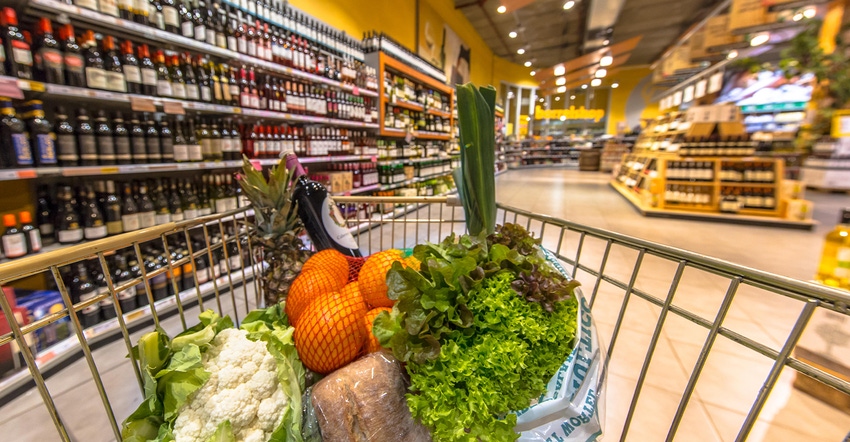Retail Giant Albertsons and Surplus Food Tech Developer Copia Share Food Recovery Trade Secrets
In a WasteExpo Food Recovery Forum Fireside Chat: “Creating Less Waste and More Hope,” two pioneering industry leaders will illuminate on what’s transpiring within their operations; show how companies donating their surplus food are coming out ahead; and unpack what’s happening in the food recovery space at large. Presenters Melissa Kral, senior manager, sustainability, Albertsons and Kimberly Smith, CEO, Copia will tackle these hot industry topics and more on Tuesday, May 7, 2:45-3:30 p.m. at the Las Vegas Convention Center.

Organizations of all types and sizes are rolling up their sleeves to figure out how to recover surplus food and see that it gets to where it is most needed rather than go to waste. They are leveraging the power of technology, social influencers, their communities, industry allies, and internal teams in a quest to transform the food system to a more sustainable and efficient one.
In a WasteExpo Food Recovery Forum Fireside Chat: “Creating Less Waste and More Hope,” two pioneering industry leaders will illuminate on what’s transpiring within their operations; show how companies donating their surplus food are coming out ahead; and unpack what’s happening in the food recovery space at large. Presenters Melissa Kral, senior manager, sustainability, Albertsons and Kimberly Smith, CEO, Copia will tackle these hot industry topics and more on Tuesday, May 7, 2:45-3:30 p.m. at the Las Vegas Convention Center.
With over 2,200 stores spread across the U.S., Albertsons Companies is using its scale to help break the cycle of hunger and divert food waste from landfill. Key to achieving far-reaching impact has been to tailor its approach at the local level. It’s done by leveraging community ties, fostering innovative partnerships, and engaging its own people.
“We’re working to make a real difference in the communities we serve and the planet we share. Thanks to the dedication of our associates and the generosity of our customers, each year our stores and the Albertsons Companies Foundation enable millions of meals to be donated by working with local organizations,” Kral says.
More than 90 percent of the food and drug retail giants’ stores donate unsold food on at least a weekly basis.
They keep the ball rolling through initiatives such as a collaboration with Uber on a donation pickup program. Leveraging Uber’s well-oiled logistics network, Albertsons moved volumes of surplus food from grocers ensuring it got to its partner food recovery organizations.
Perhaps one of its most innovative projects—an out-of-the-box concept that proved to be a real attention grabber— was a partnership with celebrity YouTuber and philanthropist, Mr.Beast, on his “Stranded in a Store challenge” where a contestant wins $10,000 for each day he or she manages to survive in a grocery store alone. But the contestant must also choose $10,000 worth of products to donate to local charities for each of those days. This novel venture generated more than $450,000 in groceries and other consumer goods that went to local nonprofit organizations.
At the same time Albertsons and collaborating brands got the message to over 225 million YouTube viewers that giving back to the community can have meaningful impact. The “Survive in a Grocery Store” video, live online, is still garnering attention around the globe; it’s been translated into 14 languages.
There was plenty more work happening off camera. Partner Copia leveraged its platform that connects food donations to not-for-profits to make sure the goods got to where they were needed.
Kral invites WasteExpo goers to come out to hear more of what’s happening on the food recovery front at Albertsons.
“Attendees will walk away inspired to find innovations and partnerships of their own to raise awareness and impact of their programs,” she says.
Originally established in 2015 as a grassroots initiative, Copia has since evolved into a tech-forward platform after years of seeing firsthand the operational and logistical challenges of donating surplus food.
Its user-friendly platform utilizes an algorithm to match businesses with thousands of nonprofit donation recipients, simplifying the complexities involved so that food service and retail companies can best manage their waste and distribute their surplus food.
The technology streamlines the process: customers can track surplus through the app and schedule donation pickups or drop-offs, leaving the rest to Copia.
“We have always been inspired by the realization that hunger isn't a scarcity problem, so we've built our entire platform around solving the logistical challenges associated with food redistribution. By addressing these hurdles head-on, we aim to improve the broader problem of hunger and food waste more effectively. We also recognize that surplus food happens, so we want to be accessible for any business when they need us,” Smith says.
To date, Copia has facilitated the donation of millions of pounds of surplus food, working with a diverse range of customers across industries.
“By bridging the gap between liquidation and landfills, we empower businesses to leverage technology and existing resources to make a meaningful impact in their communities, as well as easily improve their bottom line,” Smith says.
Smith has this advice to businesses:
Understand what your waste portfolio looks like to be able to make more informed purchasing and production decisions upstream and mitigate unnecessary waste.
When surplus happens, take action and formalize a donation plan.
Remember that by doing ‘the right thing’ there is also a financial benefit through tax deductions.
Smith and Kral will share more at WasteExpo on what can come from viewing surplus food as a resource rather than waste. And they will have some insiders’ advice on how and why to think globally but act locally.
Editor's note: WasteExpo, May 6-9, 2024 at Las Vegas Convention Center, is North America’s largest solid waste, recycling, organics, food waste recovery, and sustainability tradeshow serving both the private and public sectors.
About the Author(s)
You May Also Like




